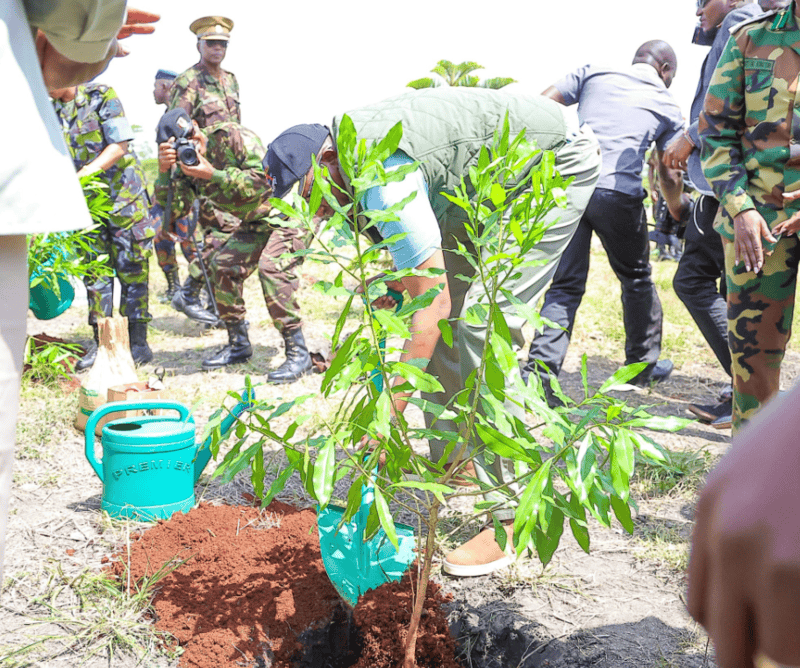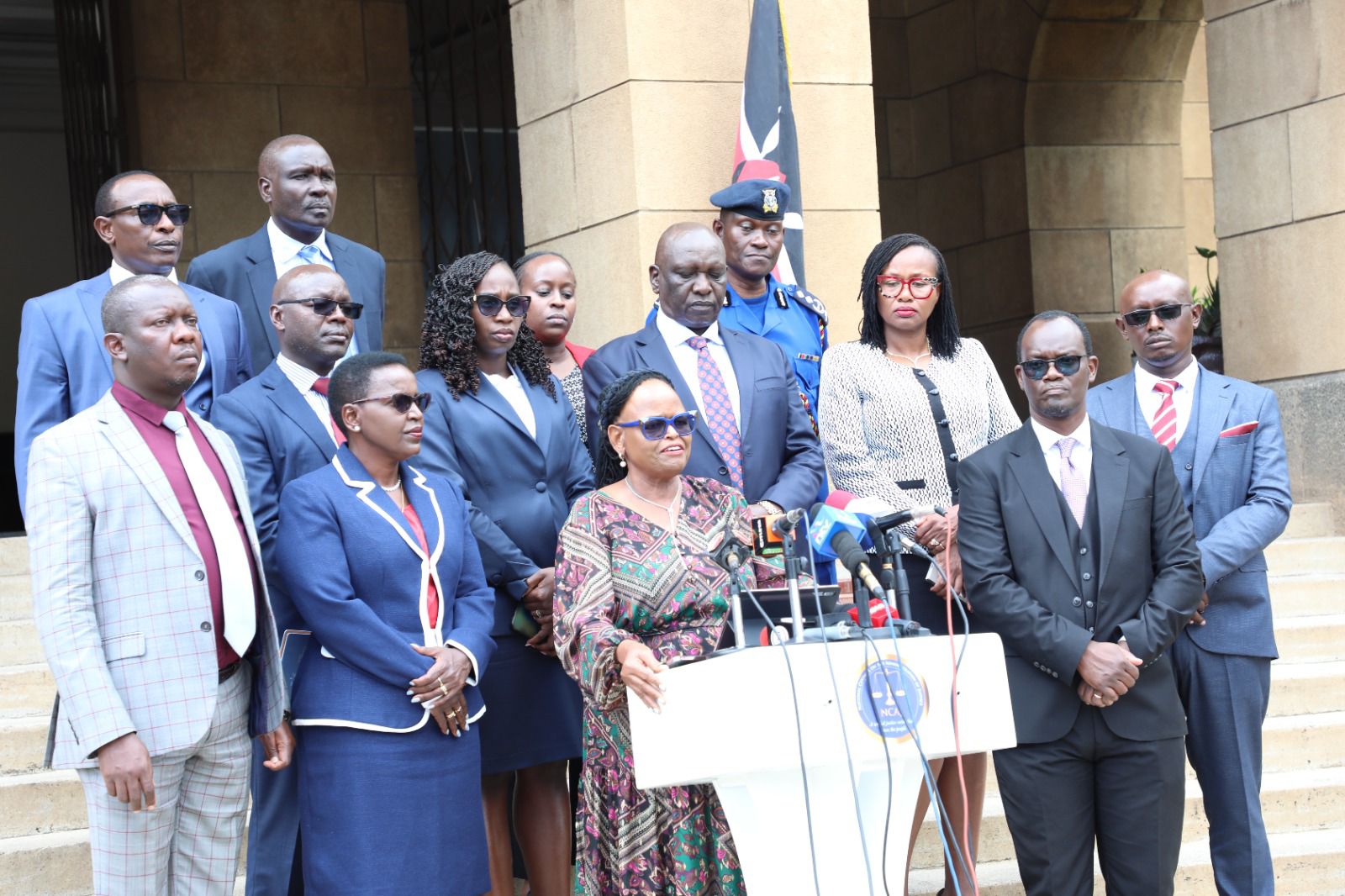Prominent climate talks not a topic for us - marginalised players

Environmental experts have recently raised concerns that this lack of awareness among bodaboda riders could hinder efforts to integrate sustainable practices into the public transport sector.
Despite the increasing promainence of climate action in global discourse, a stark disparity remains between high-level talks and tangible action on the ground, especially among marginalised stakeholders such as bodaboda riders in outlying counties.
In other words, while world leaders and policymakers frequently advocate for ambitious environmental goals, the gap between these declarations and actual implementation is widening.
More To Read
- Millions of hectares are still being cut down every year. How can we protect global forests?
- COP30 delivers mixed results on climate action, WEF experts say
- Managing conflict between baboons and people: what’s worked - and what hasn’t
- Kenya, Sweden partner to curb billions lost in post-harvest food waste
- UNEA-7 opens in Nairobi as global environmental diplomacy faces major challenges
- 2025 set for second-hottest year on record
This disconnect is particularly evident in sectors like transportation and industry, where necessary reforms and investments often fall short of the rhetoric. As a result, real-world progress frequently lags, undermining efforts to combat climate change effectively.
A spot check by The Eastleigh Voice in Kakamega County, for instance, revealed that a majority of bodaboda riders—who could play a critical role in the green transition—are unaware of sustainability and green transition initiatives.
While many riders in major cities are keen to adopt fuel-efficient practices, their counterparts in outlying counties remain largely uninformed about broader environmental policies and green technologies.
Of the riders surveyed near Maraba Primary School in Kakamega County, only one in five was familiar with sustainability initiatives. Surprisingly, none of the respondents had ever been engaged in any sensitisation campaign on green initiatives, such as transitioning from fossil fuels to cleaner alternatives. This is despite their awareness of electric bikes and their purpose in the green transition.
The riders expressed mixed reactions about whether they would adopt electric bikes in the future.
Geoffrey Ndombi noted that he would prefer an electric bike, as it is cost-effective and would help him save on rising fuel prices.
On the other hand, Anthony Ochieng, based on his research, said he would stick to petrol-powered bikes, arguing that electric bikes might not handle heavy luggage as efficiently.
Levy Maloba and Abiola Osembo added that they believe electric bikes are slower than petrol-powered ones. These mixed opinions suggest that riders lack sufficient information about the benefits and feasibility of transitioning to electric bikes.
Lack of awareness
Environmental experts have recently raised concerns that this lack of awareness among bodaboda riders could hinder efforts to integrate sustainable practices into the public transport sector.
"Bodaboda riders form a crucial part of urban transportation networks. Educating them about green transition strategies could play a significant role in reducing overall emissions," said Kennedy Mutava, a lead mechanical engineer at Kiri EV Limited, a Nairobi-based E-mobility firm.
"As cities around the world grapple with climate change and pollution, the push for a green transition becomes increasingly vital. Ensuring that all stakeholders, including those in the bodaboda sector, are included in this conversation is essential for creating a more sustainable future," he added.
Mutava also highlighted the advantages of electric mobility, noting that it is not only an eco-friendly solution but also a cost-effective mode of transport.
"Charging an electric motorbike at home is more affordable than operating a petrol bike over the same distance," he said.
E-mobility is a central component of Kenya's National Climate Change Action Plan, aligning with the country's Nationally Determined Contribution (NDC) target to reduce greenhouse gas (GHG) emissions by 32 per cent by 2030.
According to a report from the Energy and Petroleum Regulatory Authority (EPRA), the transport sector currently contributes approximately 13 per cent of total emissions, noting the need for a transition to sustainable, eco-friendly modes of transport, such as electric bikes and vehicles.
Taking control
The World Bank has reiterated the urgent need to educate the public on climate action, as it is the best way to unlock large-scale behavioural change.
In its August edition of the Education for Climate Action report, the global lender noted that educational attainment is the single strongest predictor of climate change awareness.
"An additional year of basic and public education increases climate awareness by 8.6 per cent (measured by knowledge and skills on environmental issues)," the report states.
"Education also makes individuals more adaptable to the impacts of climate change, as it increases employability and incomes. Globally, every additional year of education generates about a 10 per cent increase in earnings annually," the World Bank added.
It emphasised that educating the public also directly enhances climate adaptability.
However, the report acknowledged that climate action is progressing slowly, partly due to a lack of knowledge or skills among the population. Across the board, there is only marginal "greening" of how economies function, how firms operate, and how individuals live and work.
In 2015, 195 countries adopted the Paris Agreement, a legally binding treaty to limit global warming to between 1.5°C and 2°C above pre-industrial levels.
A stocktaking by the World Bank in 2023, however, revealed that global efforts to meet these targets are falling short. Of the 42 climate indicators tracked, only one is on track to meet its 2030 target. "Six are 'off track,' 24 are 'well off track,' six are headed in the wrong direction entirely, and five lack sufficient data to track progress," the report stated.
The World Bank also lamented that global climate efforts have placed tremendous emphasis on lowering emissions through policy, but insufficient attention has been given to building support for these policies, implementing them effectively, and ensuring their success.
At the same time, it noted that low- and middle-income countries urgently need large-scale efforts to adapt to the impacts of climate change, which will require improved awareness, knowledge, skills, and behaviours among their populations.
Top Stories Today

















































